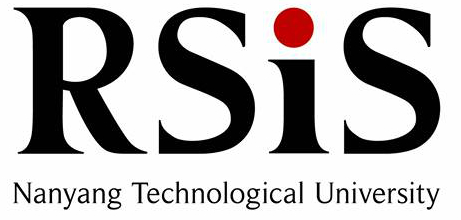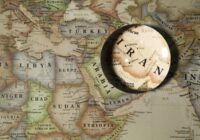Xi’s visit to Saudi Arabia, Iran and Egypt acknowledges growing Chinese concerns about instability in the Middle East that threatens vital interests.
Chinese President Xi Jinping has effectively acknowledged that China will be unable to remain aloof to multiple crises in the Middle East by deciding to visit the region on January 19—at a time that two of its major powers, Saudi Arabia and Iran, are at loggerheads. It was only last year that Xi dropped plans to visit the region after a Gulf alliance headed by Saudi Arabia intervened militarily in Yemen. The president feared at the time that his visit would be seen as taking sides.
Since then, China has signaled its grudging recognition that it can no longer limit relations to economic ties and has no choice but to play a greater role in Middle Eastern affairs. A long-standing supporter of Syrian President Bashar Al-Assad, China has recently sought to position itself as a mediator in the brutal conflict in Syria by inviting representatives of the government and the opposition to visit Beijing.
US Remains Top Dog
Chinese interest in Syria is fueled by the rise of the Islamic State (IS), which has singled China out as one of its targets; the group’s demonstrated ability to launch attacks across the globe; and the fact that hundreds of Uighurs, a rebellious Turkic Muslim ethnic group in northwest China, have joined the ranks of IS as foreign fighters. IS recently broadcast its first Chinese-language recruitment video. In November 2015, IS executed a Chinese national.
Like in Syria, where a negotiated settlement that would put an end to the violence remains elusive, Xi is likely to find that there is little incentive for a resolution of the Saudi-Iranian dispute. Saudi Arabia, in its current defiant mood and willingness to pursue a risky foreign policy and military strategy in a bid to force the United States to reengage in the Middle East, has little reason to resolve its dispute with Iran. Iran, meanwhile, is riding high with the lifting of punitive international sanctions as part of the implementation of its agreement to dismantle its potential military nuclear capabilities.
Beyond realizing that neither Saudi Arabia, China’s foremost oil supplier, nor Iran, with whom China has long had close relations, are interested in serious mediation, Xi is likely to discover that the US remains the only power potentially capable of managing the dispute even if appears unwilling at this stage to get involved more deeply.
Ironically, President Xi’s visit at a time of rising tension in the Middle East, coupled with China’s efforts to mediate in Syria, denotes the significance of this month’s publication of China’s Arab Policy Paper, with its stress on upholding traditional Chinese foreign policy principles that are increasingly being challenged in the Middle East and focus on energy and economic cooperation. The paper is China’s first articulation of a policy toward the Middle East. However, rather than spelling out specific policies, it emphasizes in generalities China’s core focus in its relations with the Middle East: economics, energy, counterterrorism, security, technical cooperation and its One Belt, One Road initiative.
Domestic Hindrances
Xi’s visit to the Middle East is, nonetheless, aimed at more than securing China’s energy imports, countering terrorism and discussing infrastructure projects to further his Silk Road initiative. It constitutes a recognition that China needs to become a player in the Middle East as part of the protection of its interests and if it wants to be taken seriously as a major power. Arab officials and pundits have long demanded that China act as a superpower and adopt a more active role in the region.
Yet in doing so, China, like the US with its close ties to Israel, is also hindered by domestic considerations in its approach to the Middle East.
Taking sides in the Middle East is a risky business and, in China, could have negative repercussions in Xinjiang. As a result, China has long been careful not to adopt positions that would upset Turkey because of the latter’s close ties to the Uighurs, who speak a Turkic language.
China’s recent antiterrorism law, nevertheless, constitutes a first step toward greater Chinese engagement. The law allows the Chinese military to stage overseas counterterrorism operations, provided it has the agreement from the relevant country. Similarly, China is establishing its first military base in Djibouti.
 The policy paper further says China intends to “strengthen exchange of visits of military officials, expand military personnel exchange, deepen cooperation on weapons, equipment and various specialized technologies, and carry out joint military exercises” with Arab countries.
The policy paper further says China intends to “strengthen exchange of visits of military officials, expand military personnel exchange, deepen cooperation on weapons, equipment and various specialized technologies, and carry out joint military exercises” with Arab countries.
Xi is likely to conclude from his visit that dabbling in the Middle East is easier said than done. Engagement in a region that is fraught with ethnic conflict and political disputes that are frequently cloaked in religious terms is not something to which China has had much exposure. If anything, its efforts to suppress dissent in Xinjiang hold out little promise for Chinese deftness in seeking to lower tensions or resolve conflicts in the Middle East. Moreover, it will take more than promises that China is not seeking hegemony in the Middle East to enable it to manage the region’s multiple pitfalls.
*[This article was originally published by the S. Rajaratnam School of International Studies, an institutional partner of Fair Observer.]
The views expressed in this article are the author’s own and do not necessarily reflect Fair Observer’s editorial policy.
Photo Credit: Frederic Legrand – COMEO / Shutterstock.com
 We bring you perspectives from around the world. Help us to inform and educate. Your donation is tax-deductible. Join over 400 people to become a donor or you could choose to be a sponsor.
We bring you perspectives from around the world. Help us to inform and educate. Your donation is tax-deductible. Join over 400 people to become a donor or you could choose to be a sponsor.
Support Fair Observer
We rely on your support for our independence, diversity and quality.
For more than 10 years, Fair Observer has been free, fair and independent. No billionaire owns us, no advertisers control us. We are a reader-supported nonprofit. Unlike many other publications, we keep our content free for readers regardless of where they live or whether they can afford to pay. We have no paywalls and no ads.
In the post-truth era of fake news, echo chambers and filter bubbles, we publish a plurality of perspectives from around the world. Anyone can publish with us, but everyone goes through a rigorous editorial process. So, you get fact-checked, well-reasoned content instead of noise.
We publish 2,500+ voices from 90+ countries. We also conduct education and training programs
on subjects ranging from digital media and journalism to writing and critical thinking. This
doesn’t come cheap. Servers, editors, trainers and web developers cost
money.
Please consider supporting us on a regular basis as a recurring donor or a
sustaining member.
Will you support FO’s journalism?
We rely on your support for our independence, diversity and quality.






